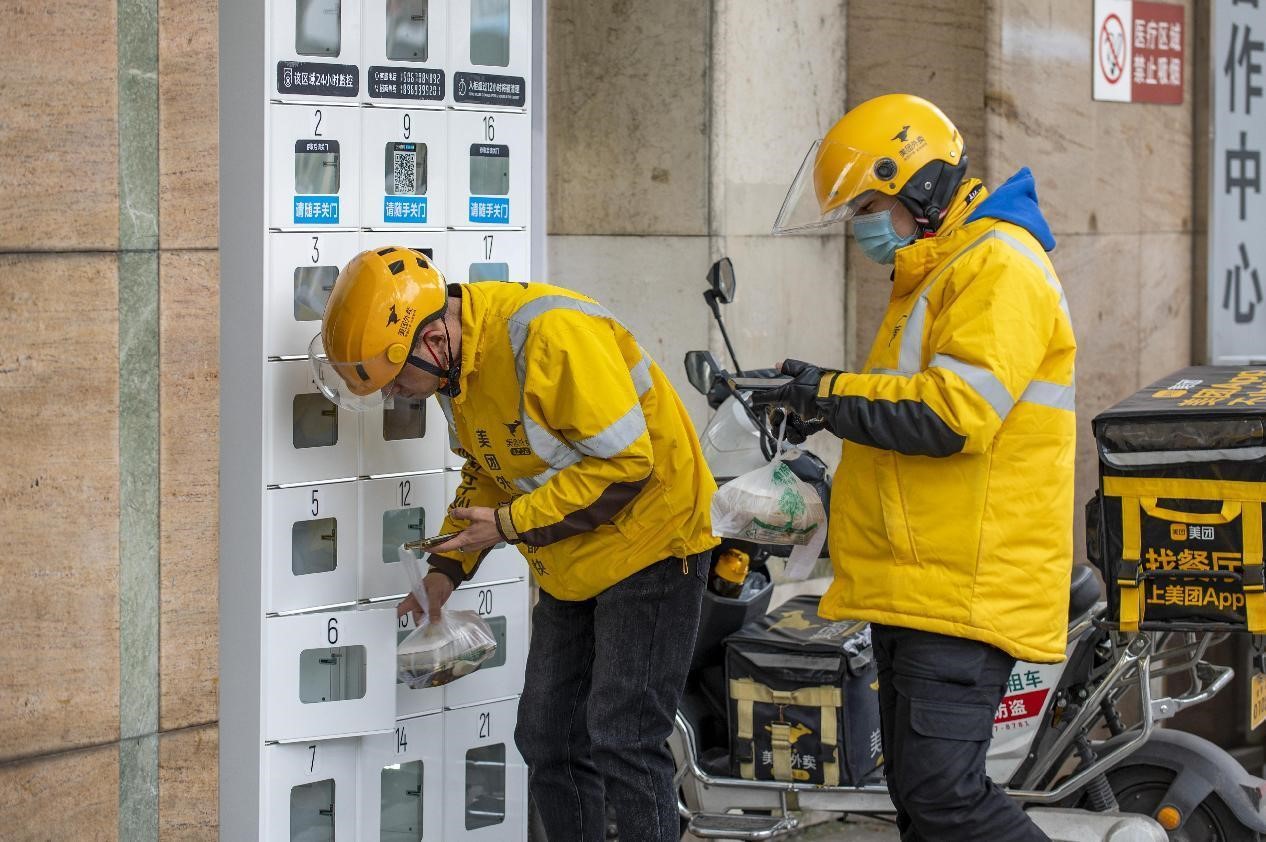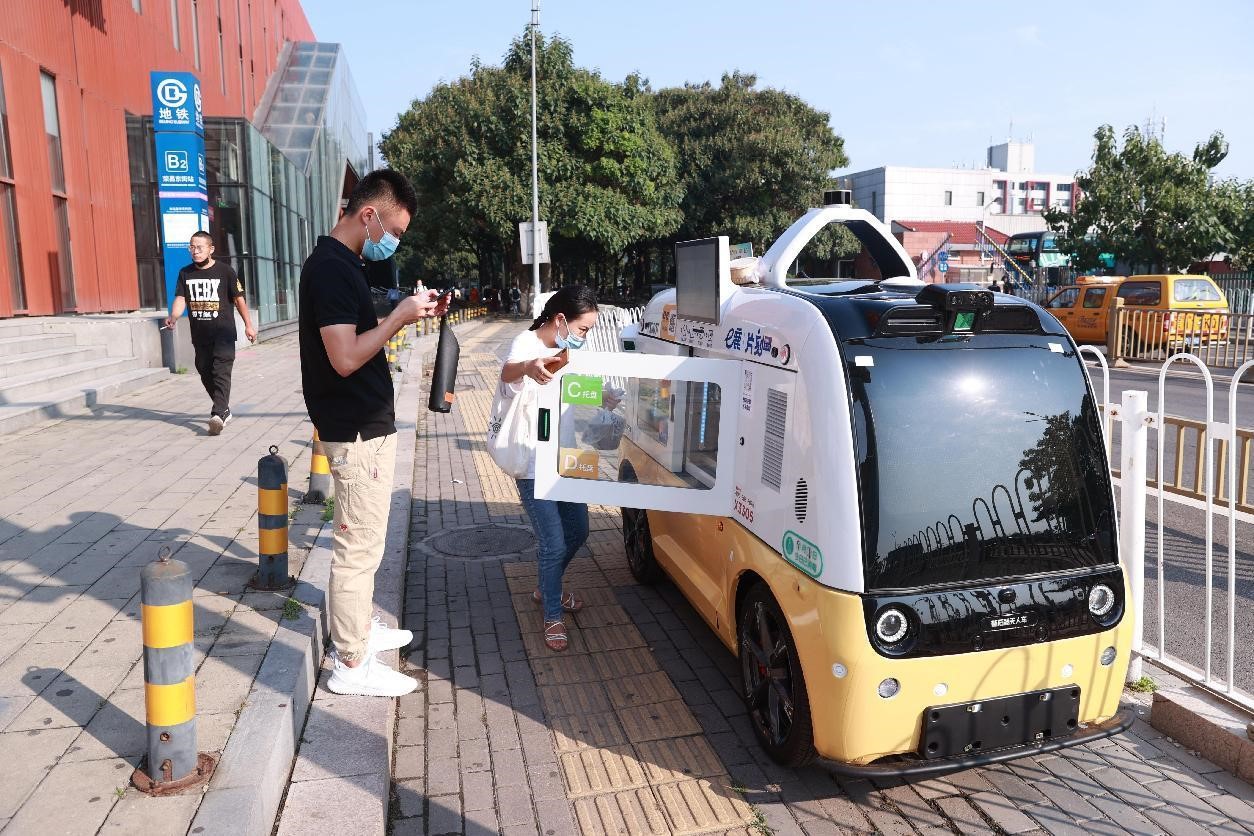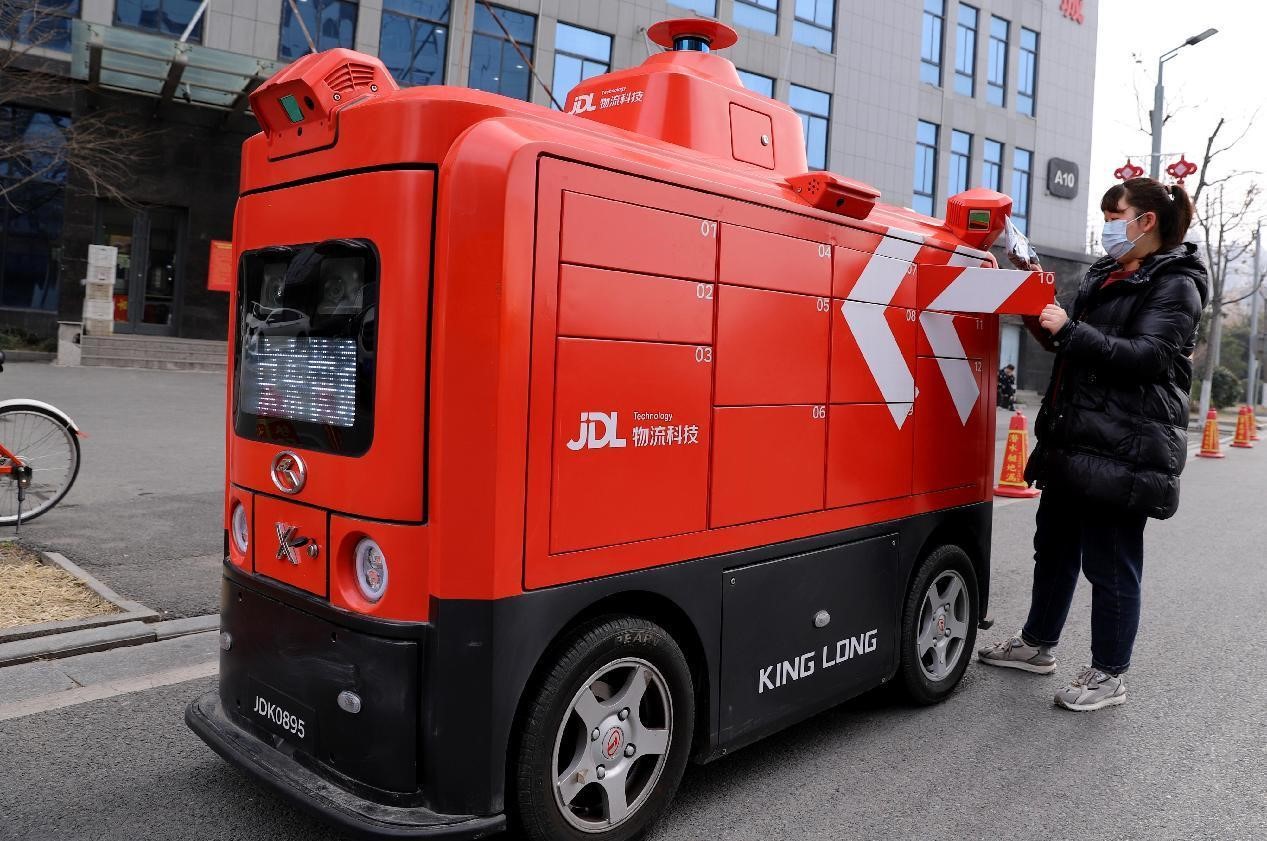Smart retailing prospers in China
China's retailing industry is becoming more and more digital and intelligent thanks to the rapid development of big data, artificial intelligence, cloud computing and other frontier technologies. It is interacting with consumers in more diverse ways, such as 24/7 online services, unmanned delivery and smart lockers.

Couriers put food into a smart locker at the gate of a hospital in Jinhua, east China's Zhejiang province. (People's Daily Online/Hu Xiaofei)
A man surnamed Wang from Pingshan district, Shenzhen, south China's Guangdong province recently placed an order on an online grocery platform after an unmanned delivery vehicle of the platform he ran into the other day aroused his interest.
On a mini program of the platform, the man bought fruits, fish, vegetables and edible oil, and these commodities were delivered to him by an unmanned vehicle soon the order was confirmed.
The vehicle is special in many aspects. Having a capacity of 500 kilograms and a range of 120 kilometers, it can deliver tonnes of products on a daily basis. The smart vehicle can also recognize traffic light and steer clear of obstacles on its way. Besides, it is also heat-insulated, which ensures that hot and frozen commodities are delivered to consumers in appropriate temperatures.
Gao Shulin, chairman of board of the company that owns the grocery platform, said that the company launched such vehicles to build a smart community delivery network.
The company's attempt is a miniature of Chinese retailers' efforts to make their businesses smart in recent years.

Citizens buy breakfast from an unattended vending vehicle on a sidewalk in Beijing Economic-Technological Development Area. (People's Daily Online/Chen Xiaogen)
Smart retailing is a service that can sense consumer habits, predict consumption trends, and guide production with the help of internet, internet of things and other frontier technologies. It provides diverse and individualized products and services for consumers.
Unattended convenient stores, stores on mini programs, virtual reality-powered fitting rooms, autopilot delivery vehicles and smart delivery are all within the scope of smart retailing.
"By using big data, smart retailing offers individualized services for consumers and gives data feedback to the purchasing and delivery sectors to make production and supply more efficient," said Peng Jianzhen, secretary general of the China Chain Store and Franchise Association.
Apart from unmanned delivery vehicles, smart lockers are also frequently seen today.
A woman surnamed Chen from Changzhou, east China's Jiangsu province recently found a new function of the smart lockers in her residential complex. Besides storing express delivery parcels and food delivered by couriers, these lockers can also be used as a temporary storage for chilled products.

A woman collects her express delivery parcel from a smart delivery vehicle in Suyu district, Suqian, east China's Jiangsu province. (People's Daily Online/Sun Dongcheng)
Emerging as a new form of contactless delivery service amid the pandemic, these lockers are able to recognize, store, monitor and manage the stuffs inside them based on cloud computing and internet of things technologies.
Cloud Box, the company that runs the lockers, has also launched e-commerce services to better satisfy the rising consumption demands for "stay-at-home economy." Residents can buy vegetables, fruits, seafood and ready-to-cook food on the company's e-commerce mini program, and fetch their orders from the lockers on the next day, or have the products delivered to their doorsteps by property management staffs.
In recent years, consumers have been enjoying increasingly more scenarios of contactless delivery thanks to the development in computer vision, big data, robotics, and voice recognition technologies.
Experts believe that the implementation of smart retailing is a test for the capability of internet infrastructure construction, such as popularization of 5G and large-scale connection of internet of things. Big data processing, Hash rate and algorithms need to be constantly enhanced to better match consumers and commodities. Besides, both hardware and software must be popularized.
As the factors of consumers, commodities and warehouses become more connected and integrated, smart retailing will only release more energy.
Photos
Related Stories
- China's retail sales top 44 trln yuan in 2021
- "First-store economy" drives retail consumption in China
- China's 2021 retail sales to hit 44 trln yuan: ministry
- Smart retail solutions bring tailored services to Chinese consumers
- Hong Kong's retail sales up mildly from January to February
- China's retail sales up 33.8 pct in first two months
Copyright © 2022 People's Daily Online. All Rights Reserved.










